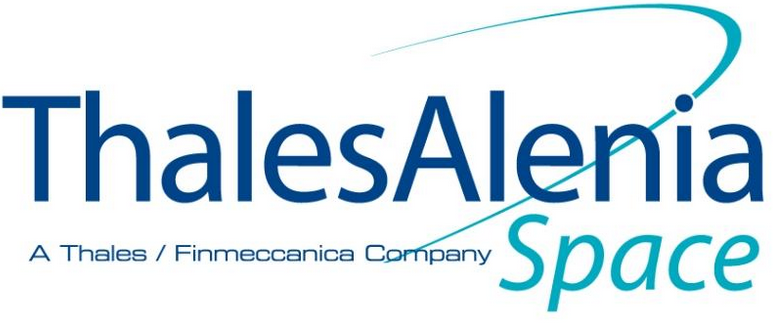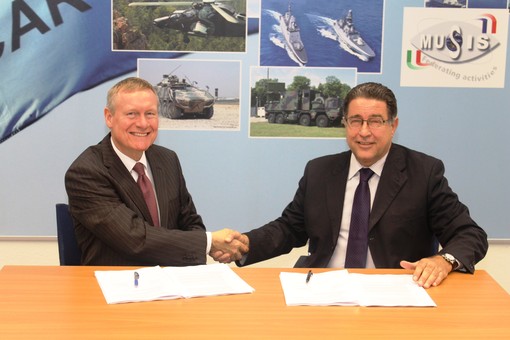
[SatNews] In the frame of the MUSIS (MUltinational Space-based Imaging System) program, Thales Alenia Space Italia has signed a contract with the Organization for Joint Armament Cooperation (OCCAR-EA).
The contract, called MUSIS Federating Activities Phase B2, aims at providing the customers with the definition of the Common Interoperability Layer (CIL). The CIL will guarantee the operational interconnection between the components in a joint Franco-Italian dual (civil-military) imaging system, comprising the Italian dual system Second-Generation Cosmo-SkyMed (CSG) and the French military system Optical Space Component (CSO), a Helios follow-on.
The Phase B2 contract, which is a 10-month duration contract budgeted at 2.5 million euros, is designed to consolidate the previous phase, so called Phase B1. It will define the technical characteristics needed for the future development of the CIL, while also providing a detailed cost analysis to demonstrate the cost-effectiveness of the proposed solution, in order to support the decision-making process for the subsequent implementation phase.

OCCAR-EA Director Tim Rowntree and Thales Alenia Space Italia Defence Sales & Marketing Manager Maurizio Giuliano at the OCCAR-EA headquarters in Bonn
As for MUSIS Phase B1, Thales Alenia Space was confirmed as representative of the Temporary Business Grouping (RTI), including Airbus Defense and Space. Thales Alenia Space will represent the Grouping in dealing with the Contracting Authority (OCCAR-EA), and will be responsible for the technical coordination of the study. Telespazio will be involved, as subcontractor to Thales Alenia Space.
The MUSIS program was established in 2006 to meet military observation needs of six countries: Italy, France, Germany, Belgium, Spain and Greece. The program’s initial aim was the development of a unified system that would allow mutual access to the different national defense observation systems, including optical and radar (SAR, or Synthetic Aperture Radar) observation data. With the number of participating countries subsequently decreasing, due to different national operational needs and development schedules, the program had to apply a more limited concept.
Italy and France decided to continue the study through a bilateral defense agreement, based on a Common Interoperability Layer (CIL) to ensure the interoperability of the user ground segments of the national CSO and CSG systems.
The development of the CIL is closely linked to the new generations of radar and optical Earth observation satellites CSG and CSO in which Thales Alenia Space is deeply involved as satellite or instrument prime. It is designed to reduce operating costs, while also increasing capabilities to support national defense and security. In addition, the strategic value of the CIL should be viewed in a broader European perspective, in virtue of its potential expandability to other countries participating in the MUSIS program.
The development of the second-generation Cosmo-SkyMed and CSO systems takes on strategic value for Italy and France at a domestic level as well as in a broader European context. It will all the more enable the success of the bilateral cooperation already existing between Italy and France in terms of communications satellites, through programs such as Athena-Fidus and Sicral. It will also be an important tool for cooperation between the armed forces of the participating countries. Regarding Cosmo-Skymed Second Generation, Italy is already applying a very proactive policy in these areas, as shown by the agreements existing with France and Poland.
For more information, please visit the Thales Alenia Space infosite

